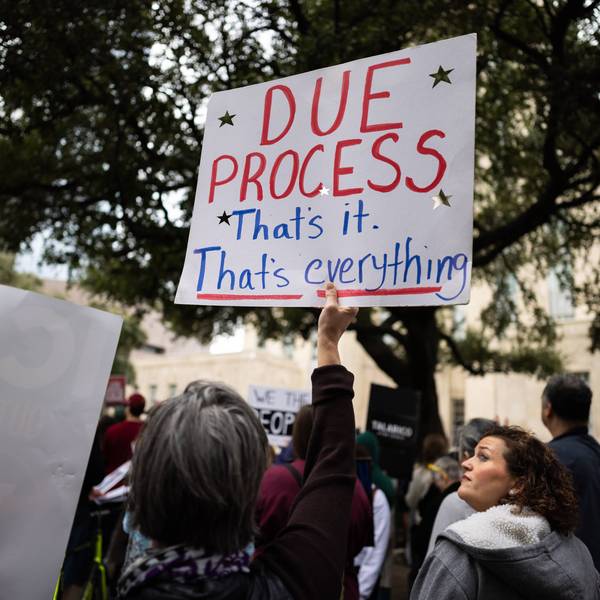If you look back over the Trump administration's handling of immigration during the past two-and-a-half years, you'll see a pattern of chronic tension and dysfunction. Like many people, you may have apprehended the pattern as a series of specific emergencies and dramatic events: the declaration of an "invasion" at our borders; the shutdown, or threatened shutdown, of our government or our southern border; the separation of migrant families crossing the border; the forced resignation of government officials unable to fulfill the president's demands for ever-harsher measures.
Some of the wild careering of the administration's behavior can be traced to a particular mix of incompetence, willful ignorance, and toxic narcissism. But a good part of it is explicable if you consider the concept of the "shock doctrine" that author and activist Naomi Klein introduced back in 2007 (The Shock Doctrine: The Rise of Disaster Capitalism). In that book and in subsequent publications, Klein showed how political leaders exploit the disorientation and fear resulting from various kinds of calamities: a sudden economic collapse, a terrorist attack, a natural disaster. Pursuing authoritarian rule, these leaders declare states of emergency and take advantage of the circumstances to ram though measures benefiting economic and political elites.
In the case of Trump's immigration policies, a number of "emergencies" were simply manufactured or generated by the administration, e.g. the termination of the DACA (Deferred Action for Childhood Arrivals) program, or the institution of the cruel "zero tolerance" (family separation) policy. While headlines focused on these issues, the administration continued efforts to criminalize migrants and to normalize its emphasis on detention, deportation, and the militarization of our borders. Its ongoing efforts have continued to benefit for-profit prison corporations like the GEO Group ($2.3 billion in 2018 revenues) and CoreCivic ($1.8 billion in 2018) as well as a host of military contractors involved in border security.
Now we're faced with a genuine, unprecedented border crisis. As New York Times journalists have reported, the number of people (mostly Central American) attempting to cross the border and seek asylum has risen to about 100,000 a month, almost a million in a year. The number of migrant families seeking entry this past February increased five-fold over the same month in 2018, and there are now 800,000 pending cases in immigration courts, with each case requiring an average of 700 days to process. Many families enter the country facing woefully inadequate resources for housing, food, and medical care.
As Naomi Klein has argued, Donald Trump's actions and policies represent not so much an aberration as a culmination of anti-democratic trends impacting American political culture over many years. Trump's responses to the most recent crises - his threats to shut down the border, his attempts to make asylum ever-more difficult to attain, and his cutting off of aid to Central American nations - emerge from such trends. And, as can be expected, his responses have exacerbated, not alleviated, problems by encouraging people to migrate sooner rather than later, and by eliminating programs that could help reduce violence in neighboring nations.
The past two-and-a-half years have taken us to a critical juncture. Immigration policy based on incarceration, deportation, and militarization has proven itself to be a disastrous failure, and Trump continues to double down on a course of action that inflicts suffering on countless individuals and families. Enabled by the powers of his office and the support of his anti-immigrant allies, he daily enacts his own shock doctrine to distract and disorient. As the crisis grows, so does the danger and potential for more harm.
Yet as the crisis grows, so does the possibility for positive change. It shouldn't be too great a leap to see that anti-violence and anti-poverty assistance to other nations represents a far wiser investment than millions spent on drones and other military equipment. Nor, with some degree of awareness, should it be too difficult to perceive the immorality of incarcerating migrants in detention facilities - and the far better (and more cost-effective) alternative of community accompaniment programs that help people integrate into communities. Nor should it be impossible to grasp that lifting the taint of criminalization from millions can help actualize human potential in unimagined ways.
These views may seem alien or even threatening to many people in our current political climate, and it will be difficult and fatiguing to ensure a fair hearing for them amidst the noise of the Trump shock doctrine. But much present suffering hangs in the balance - as does, in the longer term, the promise of a broader and richer vision of human community.




